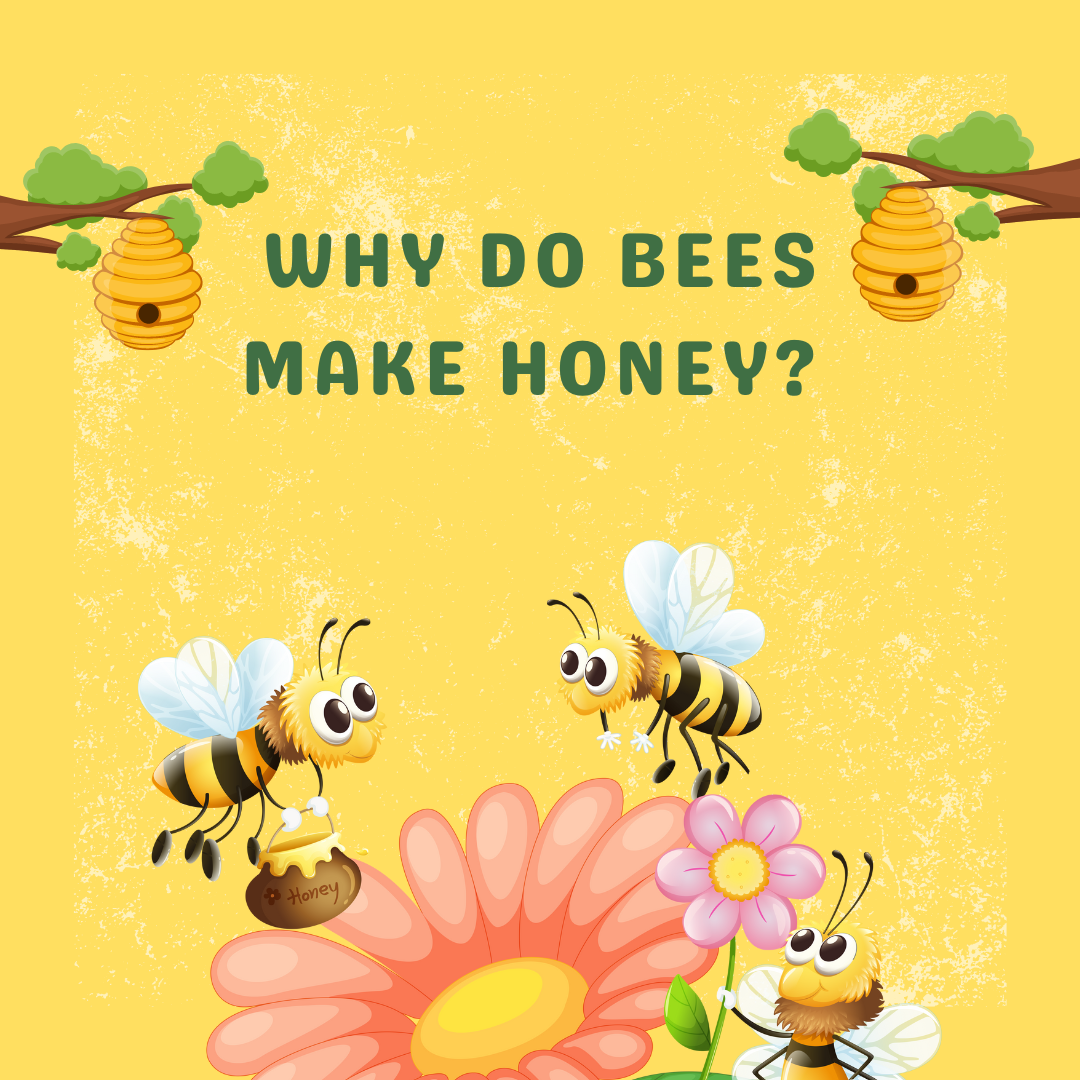Your shopping bag is empty
Why Do Bees Make Honey
- Posted by: Enquiry Admin
- Comments: 0
- Categories: YES Blog
- Tags:
- why do bees make honey
Bees are fascinating creatures that play an essential role in our ecosystem. They are responsible for pollinating a significant portion of the world's crops, which is essential for maintaining our food supply. However, one of the most remarkable things that bees do is making honey. Honey is not only delicious but also has several potential health benefits. In this article, we will explore the reasons why bees make honey and some of the amazing facts about this sweet treat.
Why Do Bees Make Honey
We need to first look at the role of honey in the bee colony. Honey is the primary food source for bees during the winter months when flowers are not in bloom and nectar is scarce. They store honey in the hive as a source of energy and nourishment to sustain themselves during the colder months.
Honey is also essential for feeding the bee larvae. The queen bee lays eggs, and the worker bees feed the larvae with a mixture of honey and pollen called "bee bread." This mixture provides the essential nutrients needed for the larvae to grow and develop.
How Bees Make Honey
Now that we understand the role of honey in the bee colony, let's take a look at how bees make honey. Honey is made from nectar, which is a sweet liquid produced by flowers. Bees collect nectar by using their long, tube-like tongues to suck the nectar out of flowers. They then store the nectar in their honey stomach. This separate stomach is an exclusively place for storing nectar.
Once the bee has collected enough nectar, it returns to the hive and regurgitates the nectar into the mouth of another bee. This process is repeated several times until the nectar is partially digested and becomes honey. The bees then store the honey in the honeycomb, which is made up of hexagonal cells made of beeswax.
To make honey, the bees need to evaporate the excess water from the nectar. They do this by fanning their wings, which creates a breeze that helps to evaporate the water. Once the water content of the nectar is reduced to around 18%, the honey is ready to be sealed in the honeycomb.
The Amazing Facts About Honey
Honey is not only delicious, but it's also a fascinating substance. Here are some amazing facts about honey:
- Honey never spoils: Honey has a long shelf life and can last for thousands of years without spoiling. This is because the high sugar content of honey inhibits the growth of bacteria.
- Honey is antibacterial: Honey contains hydrogen peroxide, which has natural antibacterial properties. This is why honey has been used for centuries to treat wounds and infections.
- Honey is rich in antioxidants: Honey is rich in antioxidants, which can help protect your cells from damage caused by free radicals.
- Honey is a natural cough suppressant: Honey has natural antibacterial and anti-inflammatory properties that may help soothe a cough and reduce throat irritation.
- Honey is a natural energy booster: Honey is rich in carbohydrates, which can provide a quick source of energy. This is why many athletes use honey as a natural energy booster before a workout. It is also crucial reason why bees make honey -- to sustain themselves.
- Honey is a natural moisturizer: Honey has natural humectant properties, which means that it can attract and retain moisture. This makes honey an excellent natural moisturizer for your skin.
- Honey is a natural preservative: Honey's antibacterial properties make it a natural preservative. This is why many food manufacturers use honey as a natural preservative in their products.
Conclusion
Bees make honey for two primary reasons: to provide a source of food for the colony and to feed the larvae. Honey is a fascinating substance that has several potential health benefits, including its antibacterial and antioxidant properties. Honey is also a natural cough suppressant, energy booster, moisturizer, and preservative. Bees have been making honey for millions of years, and it remains an essential part of the bee colony's survival.
However, bees are facing numerous challenges today, including habitat loss, pesticide exposure, and climate change. As humans, it's our responsibility to protect and conserve bees to ensure their survival and the continued production of honey.
In conclusion, the process of how bees make honey is truly fascinating. Bees collect nectar from flowers, partially digest it, and evaporate the excess water to produce honey. Honey is a crucial source of food for the bee colony, as well as a natural remedy with several potential health benefits. It's essential that we continue to protect and conserve bees to ensure their survival and the continued production of this amazing substance.







LEAVE A REPLY
Your email address will not be published. Required fields are marked *